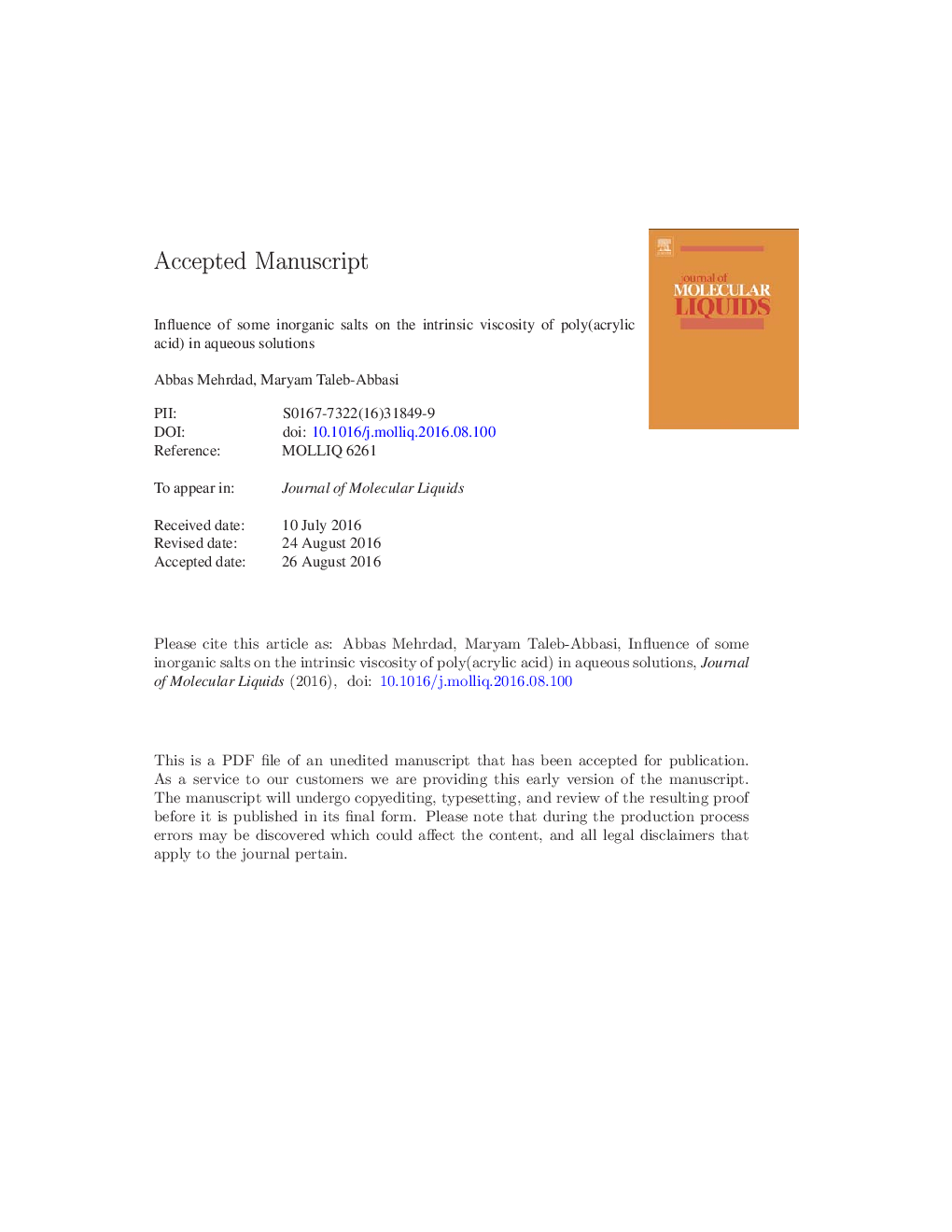| Article ID | Journal | Published Year | Pages | File Type |
|---|---|---|---|---|
| 5409567 | Journal of Molecular Liquids | 2016 | 30 Pages |
Abstract
In this work, the effect of temperature, concentration of sodium sulfate and potassium sulfate on the intrinsic viscosity of poly(acrylic acid) were investigated. Our data shows excellent conformance with the Wolf equation. The addition of salt screens the electrostatic repulsions between charges along the backbone of the polyelectrolyte chain. Consequently the intrinsic viscosity of PAA was decreased by increasing concentration of salt. Also the results reveal that the reduction of intrinsic viscosity of PAA in the presence of sodium sulfate is more than those of potassium sulfate. Potassium cation shows a screen effect less than sodium cation. Therefore the intrinsic viscosity of PAA in the presence of potassium sulfate is more than those of sodium sulfate. The flow activation energy was evaluated by Arrhenius equation. The flow activation energy data was correlated to polymer concentration with a meaningful equation. The UV-Vis spectra of poly(acrylic acid) shows that the absorption intensity of PAA was decreased with addition of sodium sulfate or potassium sulfate. The structure of the extended polymer chains reformed to random-coil conformation in the presence of salt, thus the value of electric multipole moment decreased. Consequently the absorption intensity of PAA was decreased with addition of sodium sulfate or potassium sulfate.
Related Topics
Physical Sciences and Engineering
Chemistry
Physical and Theoretical Chemistry
Authors
Abbas Mehrdad, Maryam Taleb-Abbasi,
